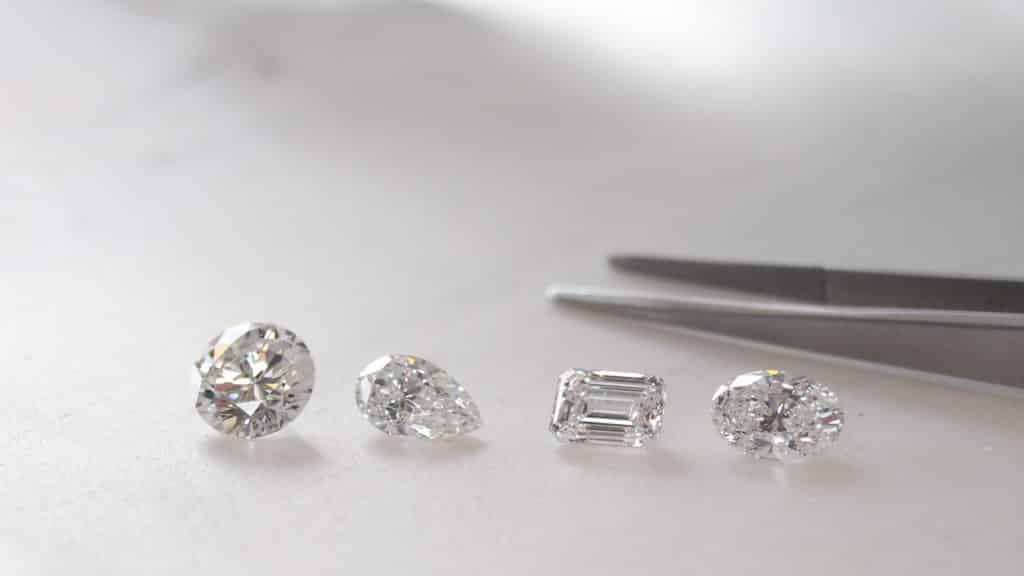Are you looking for the perfect diamond that not only dazzles but also aligns with your values and budget? Enter the world of lab grown diamonds, where brilliance meets sustainability. In this article, we’ll explore everything you need to know about loose lab grown diamonds, from their inception to their sparkling presence in the jewelry market.
Table of Contents
Introduction to Lab Grown Diamonds
What are lab grown diamonds?
Lab grown diamonds, also known as synthetic or cultured diamonds, are created in controlled laboratory environments rather than being mined from the earth. These diamonds possess the same chemical, physical, and optical properties as natural diamonds, making them indistinguishable to the naked eye.
Key differences between lab grown and natural diamonds
While both lab grown and natural diamonds share identical properties, the process of their formation differs significantly. Natural diamonds form deep within the earth’s mantle over millions of years through intense heat and pressure. In contrast, lab grown diamonds are cultivated using advanced technological processes that mimic the natural diamond-growing conditions but accelerate the timeframe to a matter of weeks or months.
Understanding Loose Lab Grown Diamonds
What are loose lab grown diamonds?
Loose lab grown diamonds refer to diamonds that have been grown in a laboratory setting and are not yet set into jewelry. These diamonds offer flexibility in customization, allowing individuals to choose their preferred setting and design for rings, earrings, necklaces, and more.
Benefits of purchasing loose lab grown diamonds
One of the primary advantages of purchasing loose lab grown diamonds is the cost-effectiveness. These diamonds are typically priced lower than their natural counterparts, offering significant savings without compromising on quality or brilliance. Additionally, lab grown diamonds are ethically and environmentally responsible, as their production eliminates the need for environmentally destructive mining practices.
Quality Factors in Loose Lab Grown Diamonds
Clarity, color, cut, and carat weight
Similar to natural diamonds, the quality of lab grown diamonds is evaluated based on the four Cs: clarity, color, cut, and carat weight. Lab grown diamonds are available in a range of qualities, allowing consumers to select the perfect diamond that suits their preferences and budget.
Cost Comparison with Natural Diamonds
Price variations between loose lab grown and natural diamonds
When comparing the prices of loose lab grown diamonds to natural diamonds, the cost difference can be substantial. Lab grown diamonds are typically priced at a fraction of the cost of natural diamonds, offering excellent value for money without compromising on quality or beauty.
Environmental Impact of Lab Grown Diamonds
Sustainability aspects
The production of lab grown diamonds has minimal environmental impact compared to traditional diamond mining. By eliminating the need for mining, lab grown diamonds help conserve natural resources, reduce carbon emissions, and minimize ecological disruption. Additionally, lab grown diamond facilities adhere to strict environmental regulations, further reducing their environmental footprint.
Ethical Considerations
Addressing concerns about lab grown diamonds
Some individuals may have concerns about the ethical implications of lab grown diamonds. However, it’s essential to note that lab grown diamonds are produced in ethical and transparent conditions, free from the human rights abuses often associated with traditional diamond mining. Furthermore, lab grown diamonds are conflict-free, providing peace of mind to conscientious consumers.
Popular Settings for Loose Lab Grown Diamonds
Engagement rings, earrings, necklaces, etc.
Loose lab grown diamonds are incredibly versatile and can be incorporated into a wide range of jewelry designs. From classic solitaire engagement rings to dazzling diamond earrings and elegant necklaces, lab grown diamonds offer endless possibilities for creating stunning pieces that reflect your unique style and personality.
Tips for Buying Loose Lab Grown Diamonds
Where to buy?
When purchasing loose lab grown diamonds, it’s essential to buy from reputable and trustworthy retailers or manufacturers. Look for companies that provide certification and guarantee the authenticity and quality of their lab grown diamonds.
What to look for?
When selecting a loose lab grown diamond, consider factors such as clarity, color, cut, and carat weight to ensure you’re getting the best value for your money. Additionally, lab made diamonds, inquire about the diamond’s origin and production process to verify its ethical and environmental credentials.
Caring for Loose Lab Grown Diamonds
Maintenance tips and cleaning procedures
To keep your loose lab grown diamonds looking their best, it’s essential to follow proper maintenance and cleaning procedures. Avoid exposing them to harsh chemicals or abrasive materials and regularly clean them with a soft brush and mild detergent solution to remove dirt and debris.
Industry Growth and Trends
Current market trends
The demand for lab grown diamonds has been steadily increasing in recent years, driven by growing consumer awareness of their ethical and environmental benefits. As a result, more jewelry retailers are offering loose lab grown diamonds as an eco-friendly and sustainable alternative to traditional mined diamonds.
Consumer Feedback and Reviews
Insights from satisfied customers
Many consumers who have purchased loose lab grown diamonds have been highly satisfied with their quality, beauty, and value. Positive reviews often highlight the affordability, ethical sourcing, and environmental sustainability of lab grown diamonds, making them an attractive choice for conscientious consumers.
